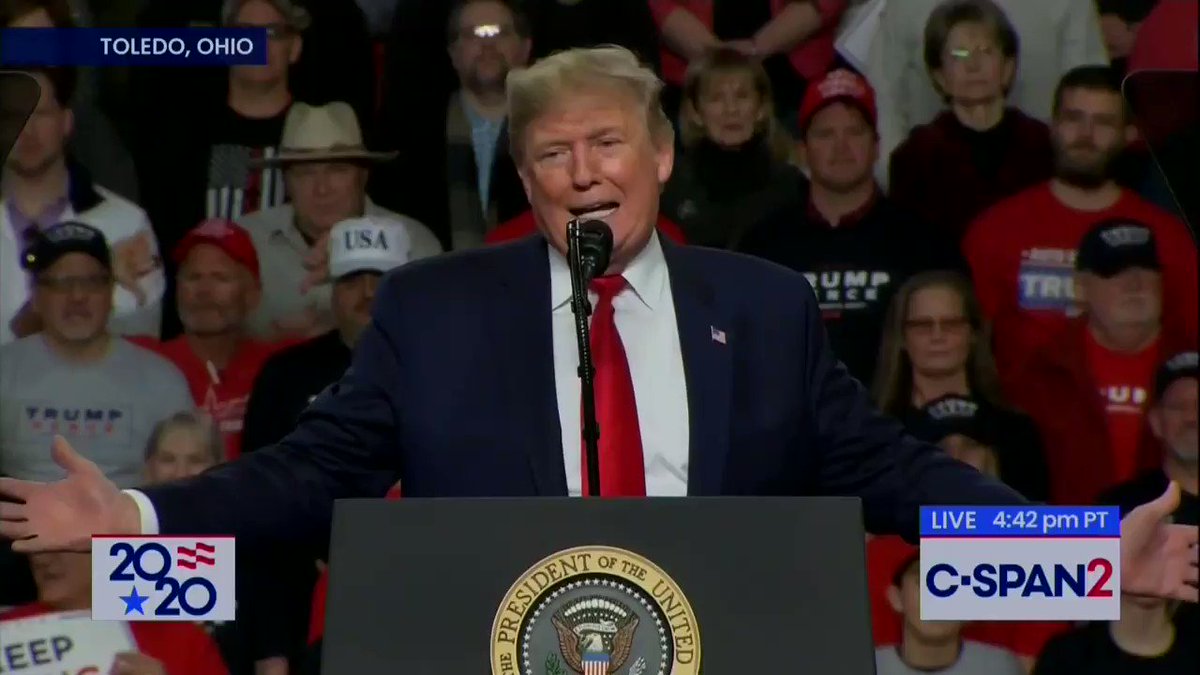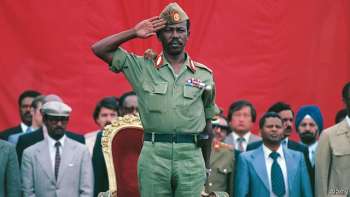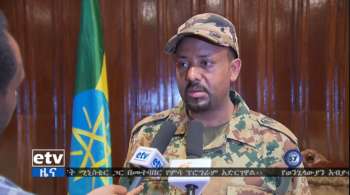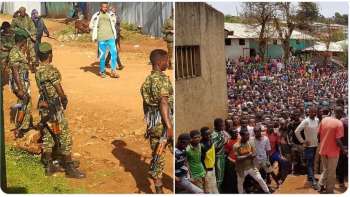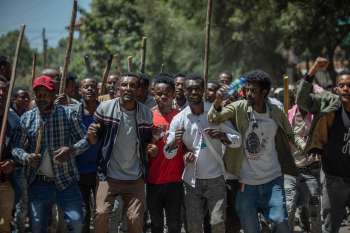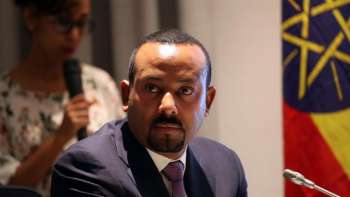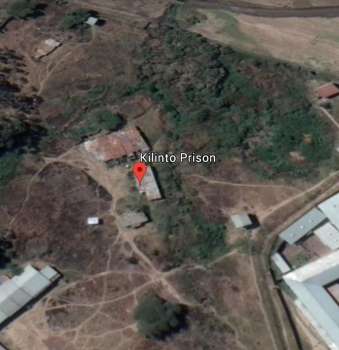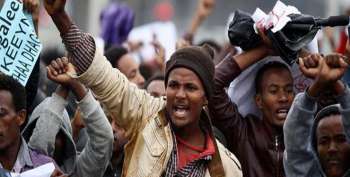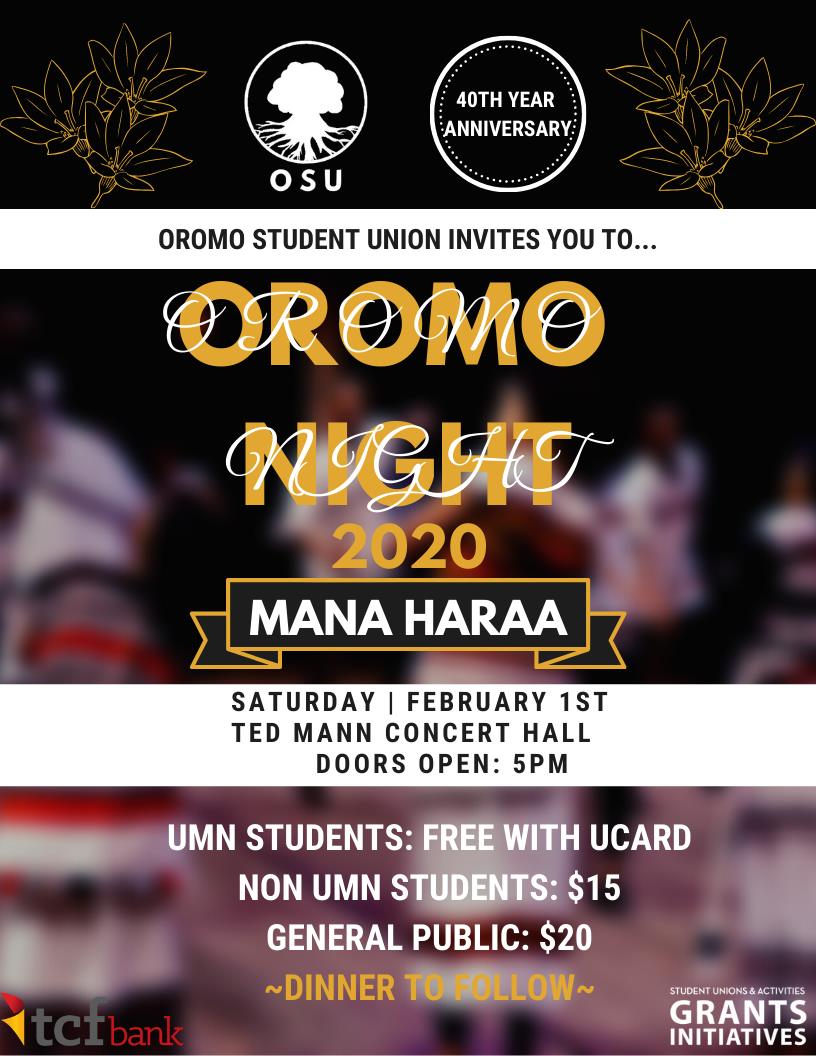By Oromia Global Forum; August 12, 2020.
Oromia Global Forum is a global alliance of Oromo Civic, Professional, and Faith-Based Organizations and individual proponents of Human Rights, residing in North America, Europe, Australia, Asia and Africa. Our mission is to enhance Oromo unity, discuss, analyze and deliberate on man-made and natural disasters as well as human rights abuses plaguing the Oromo nation, and design and deploy strategies and interventions to mitigate the plights of our people.
We, the members of Oromia Global Forum (OGF) condemn in the strongest possible term the brutal killings and atrocities committed against the people of Wolaita by the Ethiopian government security forces for peacefully demanding their right to form their own administrative regional state, a right that is enshrined in the constitution of the country.
Violence against the Wolita people began when they peacefully demanded the release of their political leaders, activists, and community leaders who were arrested while conducting a meeting to discuss about the status of their demand to establish the Wolaita regional state.
Any government’s minimum primary responsibility is to keep the peace and safety of its citizens and attend to their demands based on the laws and the constitution of the country. Unfortunately, this minimum standard has not been met by the regime in power in Ethiopia. PM Abiy’s Neo-Naftanya regime, as usual, responded with brutal armed suppression. So far, over 30 innocents and peaceful Wolaita citizens, including a pregnant woman and children, have been brutally murdered on the streets and corners, over 100 people have been injured and several have been jailed.
The Wolaita, like the Oromo, lived as free people before they were incorporated into the Abyssinian Empire after Minilik’s brutal conquest that was supported by foreigners in the 1880s. During this invasion, the people of Wolaita did not surrender easily. They heroically fought against the invaders by inflicting heavy casualties. They were finally conquered by the better armed forces of Abyssinian invasion.
The conquest meant the imposition of serfdom and slavery on the people of Wolaita, like the rest of the people of the South including the Oromo people. Since then, Wolaitas and Oromos were reduced to second class citizens in Ethiopia. The struggle to be free, to have justice, freedom and democracy began then and has been going on for about 150 years for Oromo, Wolaita, and other oppressed nations and nationalities in the Ethiopian Empire. The ongoing war in all parts of Ethiopia is the manifestation of the unresolved colonial subjugation.
The peoples of Ethiopia rejected the feudal serfdom and various forms of slavery and ended the monarchical rule in 1974 by deposing the then Emperor Haile Selassie. Unfortunately, the military junta that took power could not address the demands of the country’s nations and nationalities to determine their own fate and establish self-rules. The military rule turned out to be undemocratic and totalitarian.
In 1991, a coalition of liberation fronts, the OLF, TPLF and EPLF managed to take down the military junta and establish a transitional government. As a result, the then province of Eritrea seceded from Ethiopia declaring its independence. The OLF, though it was ousted from the transitional government in 1992, played a key role in establishing a new national federal system that had nine regional states, one of them being the regional state of Oromia. However, 56 nations and nationalities of the South were put in one cluster called the Southern Nations, Nationalities and Peoples (SNNP). The people of Wolaita, like all the rest of the people of the South, could not exercise their right to self-rule. It is important to note that the federal arrangement under the TPLF-EPRDF rule was symbolic and only served to benefit the ruling TPLF regime.
The Oromo people, the people of Wolaita and all the peoples of Ethiopia fought against the TPLF-EPRDF’s brutal repression for 27 years prior to 2018. The Oromo youth called Qeerroo and Qarree put up a fierce but peaceful resistance against this brutal regime and managed to dislodge it from power in April 2018. The Oromo people and the rest of Ethiopians trusted those who claimed to be reformists within the same TPLF-EPRDF regime to lead the transition to democracy. The current PM Abiy was then catapulted to the highest office of the land through the sacrifices of the Qeerroo and Qarree peaceful movement and other Ethiopians. That change came at a cost of about 5000 young lives and hundreds of thousands of injuries.
Unfortunately, Abiy and his partners turned out to be con artists who were in this just for their own personal power and dream. In fact, Abiy blatantly talked about his lifelong dream of being the 7th king of Ethiopia as his mother kept telling him since he was seven years old. PM Abiy, despite the euphoria he created around peaceful transitions to democracy during his early tenure, started to dial back the clock to take us back to the imperial rule of the 19th century. Praising the emperors and kings that committed genocide against the Oromo, Wolaita and other peoples of the South, he began erecting statues after statues for the much despised emperors of the past and promised to annul the current federal constitution and dismantle the existing Multi-national federal system of government. A few months after he came to power, he began reinstituting a unitary and assimilative system to facilitate the dominance of the Amharic language, culture, and identity under the disguise of “Medemer”. This meant that he was on a collision course with the majority of the country’s 80% to 90% of the population. In his dream to become the 7th king and to resurrect his so called ‘the old glorious Ethiopia’, which was a living hell for the marginalized nations and nationalities, he has found his best partners in Neo-Naftanyas. These are people who do not want to hear the demands of nations and nationalities for genuinely democratized self-rule and self-determination. They are against a multi-national federal system, and want to bring back the old unitary and assimilative system where the Amharic language, culture and identity is uniquely dominant and the Amhara remain the beneficiaries.
We, Oromos, fully sympathize with the people of Wolaita as we are also in fierce struggle against Abiy’s regime of terror. Since the June 29, 2020 assassination of our hero, Hacalluu Hundeessaa, the renowned musical genius and revolutionary, over 500 Oromos have been massacred by the government. Many political opponents, activists, Oromo nationalists and journalists have been thrown to jail in thousands and are still suffering in congested jails without due process. Since all the prisons are now full, the government has ironically turned schools into prisons. It has weaponized COVID 19 and is exposing its opponents to this viral infection. Blatant human rights abuse and atrocities including rape, torture, extrajudicial killings, and displacement are rampant in Oromia, the regional state of the Oromo people.
We, Oromos, are grateful to our Wolaita sisters and brothers for their recent expression of solidarity with our people before this brutal massacre and atrocity began taking its toll on them too.
Our fate is inextricably linked with the fate of the people of Wolaita and all marginalized nations and nationalities, we are together in this fight for justice, equality, freedom, and democracy.
Again, we, members of Oromia Global Forum, would like to reiterate our strongest condemnation of the brutal suppression, killings and atrocities committed against the people of Woliata and express our full support and solidarity in their quest to establish the Wolaita regional state and to assert their right to self-rule.
We would also like to use this opportunity to call up on all nations, nationalities and peoples to stand together in the face of government sanctioned brutality, against PM Abiy’s Neo-Naftanya regime. Because, he wants to take us back to the old days of imperial slavery by reinstituting the backward system, we have to stand together to assert our right to self-determination and self-rule as enshrined in the current constitution of the country.
Victory to the oppressed!
United, we shall overcome and win, divided we fall!
Oromia Global Forum
Signatories:
- Advocacy4Oromia
- Bilal Oromo Dawa Center
- Canaan Oromo Evangelical Church
- Charismatic International Fellowship Church
- DMV Oromo Islamic Center
- Gaadisa Sabboontottaa KP
- Global Gumii Oromia
- Global Oromo Advocacy Group
- Global Waaqeffannaa Council
- Horn of Africa Genocide Watch
- Human Rights League of the Horn of Africa
- International Oromo Lawyers Association
- International Oromo Women's Organization
- International Qeerroo Support Group
- Network of Oromo Studies
- Mana Kiristaanaa Fayyisaa Addunyaa
- Oromo Christ Evangelical Lutheran Church
- Oromo Community of Bergen
- Oromo Community of Oslo
- Oromo Communities’ Association of North America
- Oromo Evangelical Lutheran Church of Los Angeles
- Oromo Evangelical Lutheran Church of Washington DC Metropolitan Area
- Oromo Evangelical Lutheran Mission Society
- Oromo Human Rights and Relief Organization
- Oromo Legacy, Leadership and Advocacy Association
- Oromo Lutheran Church of Baltimore
- Oromo Relief Association in USA
- Oromo Parliamentarians Council
- Oromo Political Prisoners Association
- Oromo Scholars and Professinals
- Oromia Support Group
- Oromo Studies Association
- Tawfiq Islamic Center
- Tawhid Oromo Islamic Center in Minnesota
- Union of Oromo Communities in Canada
- United Oromo Chirstian Church in Australia
- United Oromo Evangelical Church
- Wabii Maccaa Association
- Washington DC Metropolitan Oromo SDA Church
